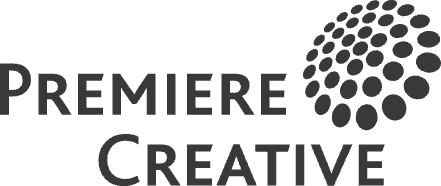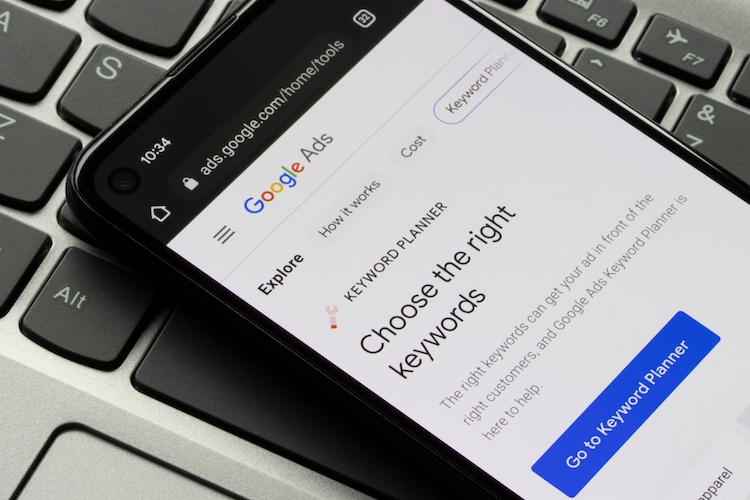Pay-per-click (PPC) campaigns derive their success from keywords. Just picture this: you’ve dedicated weeks of meticulous preparation for your latest PPC campaign, but instead of feeling satisfied, you’re left puzzled why you did not meet your goal benchmarks. Frustration creeps in as you start questioning what went wrong. As you investigate deeper into the matter, you realize that the Achilles’ heel of your PPC campaign was the lack of strategic keyword selection and match type.
Keywords serve as the foundation of any effective PPC campaign, allowing businesses to connect with their target audience and optimize their return on investment (ROI). By carefully incorporating chosen keywords into your PPC campaigns, you position your ads in front of potential customers precisely when they express interest.
What are the Different PPC Keyword Match Types?
In your PPC campaign, keywords act as the entry point; but to steer your advertising efforts, you must grasp the concept of keyword match types. These match types come into play, determining when and how your ads show up as users enter search queries. Advertisers can use this array of match types to fine-tune their campaigns and ensure the right audience sees the most relevant ads.
Exact Match Keywords
Exact match keywords offer precise targeting for your ads, making them the most specific match type. When you designate a keyword as exact match, your ad will only activate when a user’s search query precisely matches the specified keyword or phrase. For instance, if your exact match keyword is “buy a pool heater,” your ad will exclusively appear when users enter those exact terms in search engines.
This level of precision often results in higher click-through rates (CTR) and conversion rates, as your ads perfectly align with the specific needs of searchers. Exact match keywords suit businesses that have a clear understanding of their target audience and specific offerings. Moreover, you can effectively allocate your budget to the most relevant searches, optimizing your campaign’s performance.
Phrase Match Keywords
Expanding on the precision of exact match keywords, phrase match keywords provide a level of flexibility while retaining relevance. With phrase match, your PPC ads become visible when users input search queries containing your designated keyword in any order. For instance, if your phrase match is “buy a pool heater,” your ad might appear for searches like “pool heater buy” or “buy pool heaters.”
These slight variations in user queries offer an opportunity to explore different keyword combinations while still ensuring that your ads align with the primary intent of users’ searches. Additionally, this keyword match type allows you to capture users who show interest in your products or services, even if they use different phrasing or include additional terms in their search queries.
Broad Match Keywords
Broad match allows your ad to appear for searches like “buy a pool heater,” “pool heater repair,” or “pool heater parts,” along with other variations connected to your keyword. The main advantage of a broad match is its ability to uncover new keyword opportunities and extend your campaign’s reach.
By using broad match, you enhance the chances of attracting users who might be interested in your offerings but hadn’t thought of the exact terms you initially targeted. However, the wider scope of broad match also brings the risk of displaying your ads for searches that might not relate to your business.
Broad Match Modifier Keywords
By adding a “+” symbol before essential keywords in a broad match modifier, you signal to Google Ads that certain words must be present in a user’s search query for your ad to show up. For instance, using the broad match modifier “+pool +heaters” ensures that searches like “where to buy a pool heater” or “buy a new pool heater” will trigger your ad.
Negative Keywords
Match types govern when your ads appear, but negative keywords can eliminate specific search queries from activating your ads. After listing negative keywords, you guarantee that your ads will not show up for irrelevant or unrelated searches. For example, if you sell pool heaters, including “free” as a negative keyword would prevent your ads from displaying for searches like “free pool heaters.”
Choosing the Right Match Type for Your Campaign
Let’s explore the best practices for choosing the right match type that aligns with your unique advertising goals.
Start with Keyword Research
Keyword research holds immense significance. By grasping the language your target audience uses to express their needs and desires, you can create compelling ad copy and optimize your bids to effectively reach potential customers. To aid in your keyword research, consider leveraging the following tools and platforms:
- Google Keyword Planner: A fundamental part of Google Ads, the Keyword Planner offers valuable insights into search volume, keyword competition, and related keywords.
- SEMrush: Renowned for its robust features, SEMrush serves as a comprehensive SEO and PPC tool, providing extensive keyword data, competitor analysis, and search trends.
- Ahrefs: Widely considered an industry leader in SEO and keyword research, Ahrefs offers a wealth of data on keyword search volume, keyword difficulty, and content analysis.
- Moz Keyword Explorer: Moz’s Keyword Explorer provides valuable data on search volume, organic CTR, and keyword difficulty, helping you prioritize and optimize your keyword selection.
Fine-Tune Your Keyword Lists
To begin, brainstorm a set of primary keywords that directly portray your products or services. For example, if you run a pool company, your central keywords might comprise of “pool,” “pool repair,” and “professional pool service.”
Following that, broaden your keyword list by delving into long-tail keywords – extended and more specific phrases that precisely reflect user intent. Long-tail keywords often possess lower search volumes but hold significant targeting potential, resulting in higher conversion rates. Sticking with the pool heaters example, long-tail keywords could encompass “best pool heater shop near me” or “affordable pool heaters for sale.”
Analyze Search Volume & Competition
Search volume provides information about the frequency of user searches for a particular keyword, giving valuable insights into its popularity. Meanwhile, keyword competition gauges the level of difficulty in ranking and competing for that keyword within the PPC landscape.
High-volume keywords often bring higher competition, making it more difficult to secure prominent ad placements. On the other hand, low-competition keywords might have limited search volume and reach. Striking the right balance between the two allows you to target keywords that offer a favorable combination of visibility and attainability.
Reconsider Your Audience
To gain insights into the search intent of your potential customers, remember to analyze their preferences, behaviors, and search patterns. For businesses with a niche target audience, like those offering specialized products or services, employing more specific match types such as exact match and phrase match can prove beneficial. This strategy guarantees that your ads are highly targeted, thus increasing the chances of attracting qualified leads.
Evaluate Budget Constraints
Budgets can make or break a PPC campaign. Costs per click (CPC) and click-through rates (CTR) differ across various match types. For businesses with limited budgets, opting for more specific match types like exact match and phrase match can prove cost-effective. By focusing solely on highly relevant searches, you can optimize your spending and prevent wasteful ad impressions.
Effective Keyword Strategies in PPC Campaigns
Now that we’ve examined the significance of keywords and the various match types, let’s delve into effective strategies for using keyword match types in your Google Ads campaigns. By incorporating these best practices, you can enhance your PPC endeavors and achieve improved outcomes.
Deploy Negative Keywords to Exclude Irrelevant Searches
You can prevent your ads from appearing for searches that are unlikely to result in conversions by specifying negative keywords. To identify negative keywords, regularly review your campaign data. Analyze search terms that trigger your ads but don’t relate to your business offerings. For example, if you operate a high-end pool company, you could add negative keywords like “affordable” or “cost-effective” to exclude searches that do not align with your target audience.
Organize Keywords into Ad Groups
When you group similar keywords together, you can craft creative copy that directly addresses users’ search intent. For instance, if your campaign revolves around “vinyl pools” and “saltwater pools,” create separate ad groups for each category. This way, you can write ad text that emphasizes the distinctive advantages of each pool type, providing users with a more personalized experience.
Furthermore, organizing your keywords into ad groups simplifies the monitoring and optimization of each group separately, guaranteeing that every segment of your campaign receives the attention it deserves.
Track Your Results & Optimize Your PPC Campaigns as Needed
Make use of the comprehensive reporting tools offered by Google Ads to keep track of vital metrics like click-through rates, conversion rates, and return on investment (ROI). Regularly examine your campaign data to pinpoint strengths and weaknesses. Evaluate how different match types, ad groups, and individual keywords perform. This analysis will aid you in identifying the top-performing keywords and allocating your budget to the most productive areas.
Based on the data you gather, implement data-driven adjustments to your campaigns. Consider raising bids on high-performing keywords to increase their visibility or pausing underperforming keywords to optimize budget allocation.
Take Control of Your PPC Campaigns with Premiere Creative
Always keep in mind that the success of your PPC campaigns relies on strategic keyword research and match type selection. By comprehending your audience, optimizing your budget, and utilizing the power of negative keywords, you can attain higher click-through rates, conversion rates, and return on investment.
Don’t allow the complexities of PPC management to hinder your progress. Reach out to Premiere Creative today and unlock the full potential of your digital advertising endeavors. By partnering with Premiere Creative, you will have access to a team of dedicated professionals committed to enhancing your digital advertising efforts. Call (973) 346-8100 and let your next PPC campaign soar to new heights.

